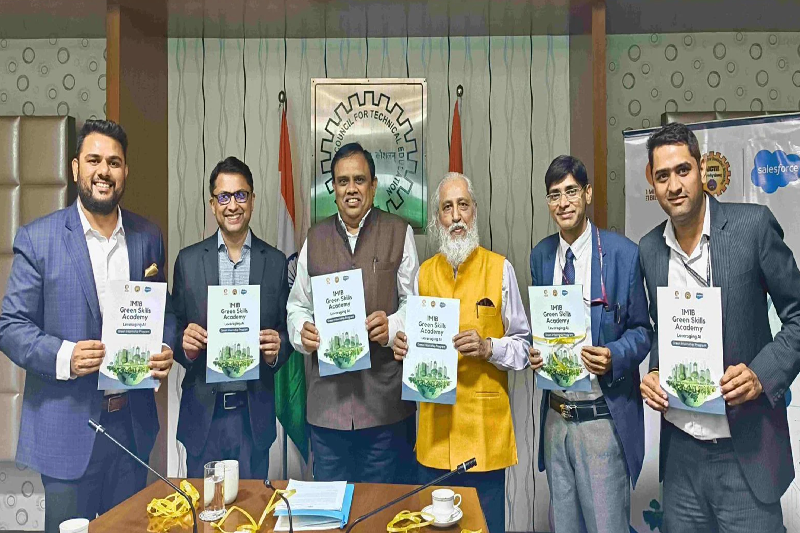
AICTE Launches Major Initiatives to Boost Employability of 20 Lakh Engineering Students Across India
The All India Council for Technical Education (AICTE) has unveiled a comprehensive set of initiatives aimed at improving the employability of engineering graduates across India. Announced on Engineers’ Day, September 15, 2025, these measures target the growing concern over the readiness of engineering students to meet industry demands. With over 30 lakh students enrolled in 5,868 AICTE-approved institutions, these reforms are poised to create a substantial impact on the quality of technical education and graduate outcomes nationwide.
Project PRACTICE: Transforming Tier-2 and Tier-3 Colleges
At the heart of AICTE’s new strategy is Project PRACTICE (Project for Advancing Critical Thinking, Industry Connect and Employability). This initiative specifically focuses on strengthening academic performance in 1,000 tier-2 and tier-3 engineering colleges, which often face challenges such as limited industry exposure and weaker academic results.
Over the next three years, Project PRACTICE aims to directly benefit 20 lakh students and 10,000 faculty members by promoting project-based learning, engaging students in live industry projects, and providing enhanced skills training. This hands-on approach is designed to foster critical thinking, practical skills, and real-world problem-solving abilities among students.
Backed by a joint investment of Rs 23.31 crore, the program is a collaborative effort between AICTE and partners including the Maker Bhavan Foundation, LEAP, and CRISP. The initiative seeks to elevate the academic standards of underserved institutions to levels comparable with premier engineering colleges.
ARI Portal: Bridging Students to Research Internships
Complementing Project PRACTICE, AICTE has launched the AICTE Research Internship (ARI) Portal, a dedicated platform to connect students with research internship opportunities. This portal will help students gain invaluable exposure to research environments, enabling them to develop critical analytical skills and deepen their understanding of technical subjects beyond classroom learning.
The ARI Portal is expected to motivate more students to engage in research activities, fostering a culture of innovation and inquiry essential for a competitive workforce.
Establishment of R&D Cells and Climate Cells in Institutes
In a push towards fostering innovation and sustainability, AICTE has mandated the formation of Research and Development (R&D) Cells and Climate Cells in all approved engineering and diploma institutes.
- R&D Cells will focus on encouraging cutting-edge research, innovation, and collaboration between academia and industry.
- Climate Cells aim to increase awareness and action towards environmental sustainability, equipping students to contribute to climate-conscious engineering solutions.
This move aligns with global priorities on sustainability and prepares students to address contemporary environmental challenges through technological innovation.
Free Access to AI Tools: Empowering Students with Modern Technology
Recognizing the importance of technology in education, AICTE has also announced free access to AI-powered tools such as ChatGPT and Perplexity Go for students across its institutions. These advanced tools will enable students to automate routine tasks, enhance research efficiency, and focus more on critical thinking and creativity.
This initiative empowers students to leverage artificial intelligence to improve their learning processes and prepare for a future where AI plays a central role in all sectors.
Leadership Vision: Beyond Employability
AICTE Chairman Prof. TG Sitharam emphasized that these initiatives are designed not merely to boost employability but to cultivate a broader ecosystem of innovation, environmental consciousness, and industry-academia partnership. By integrating these elements, AICTE aims to nurture well-rounded engineers who can drive India’s technological and sustainable development goals.
Benefits to Underserved Institutions
Leaders from partnering organizations, including R. Subrahmanyam of CRISP, highlighted the potential impact on institutions that traditionally lag in academic outcomes. These initiatives are expected to uplift non-meritorious and underserved colleges, reducing educational disparities and creating more equitable opportunities for students across diverse regions.
Addressing the Employability Gap at Scale
With an enrollment of over 30 lakh students in AICTE-approved engineering and diploma institutions, the reforms represent a significant step towards narrowing the employability gap. By focusing on skill development, research exposure, and environmental responsibility, AICTE aims to prepare a new generation of engineers equipped to meet the evolving needs of Indian and global industries.
Conclusion: A New Era for Engineering Education in India
AICTE’s latest initiatives mark a transformative phase in technical education, targeting not only improved job readiness but also fostering a culture of innovation and sustainability. Through Project PRACTICE, the ARI Portal, R&D and Climate Cells, and access to AI tools, the council is creating a robust framework to enhance the capabilities of millions of students nationwide.
These forward-looking reforms will empower engineering graduates with critical skills, research opportunities, and environmental awareness, making them valuable contributors to India’s development. As these programs roll out over the coming years, the Indian higher education landscape stands on the cusp of significant positive change.
For engineering students and institutions alike, the future looks promising—anchored in collaboration, innovation, and a commitment to excellence.



